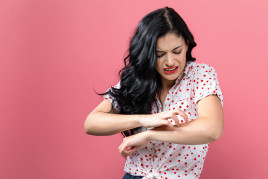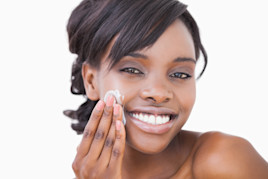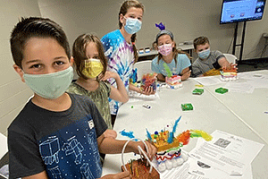How to stop biting your nails
How to stop biting your nails: Dermatologists' tips
While comforting to some, nail biting can damage your fingers and nails and even lead to infection. To stop biting your nails, follow these tips from board-certified dermatologists.
Nail biting typically begins in childhood and can continue through adulthood, and the side effects can be more than cosmetic. Repeated nail biting can make the skin around your nails feel sore, and it can damage the tissue that makes nails grow, resulting in abnormal-looking nails. Chronic nail biting can also leave you vulnerable to infection as you pass harmful bacteria and viruses from your mouth to your fingers and from your nails to your face and mouth.
To help you stop biting your nails, dermatologists recommend the following tips:
Keep your nails trimmed short. Having less nail provides less to bite and is less tempting.
Apply bitter-tasting nail polish to your nails. Available over-the-counter, this safe, but awful-tasting formula discourages many people from biting their nails.
Paint or cover your nails. You are less likely to bite your nails if they look nice, or your spend money to get them done in a salon. Alternatively, you can also cover your nails with tape or wear gloves to prevent biting.
Replace the nail-biting habit with a good habit. When you feel like biting your nails, try playing with a stress ball or fidget toy instead. This will help keep your hands busy and away from your mouth.
Identify your triggers. These could be physical triggers, such as the presence of hangnails, or other triggers, such as boredom, stress, or anxiety. By figuring out what causes you to bite your nails, you can figure out how to avoid these situations and develop a plan to stop. Just knowing when you’re inclined to bite may help solve the problem.
Try to gradually stop biting your nails. Some doctors recommend taking a gradual approach to break the habit. Try to stop biting one set of nails, such as your thumb nails, first. When that’s successful, eliminate your pinky nails, pointer nails, or even an entire hand. The goal is to get to the point where you no longer bite any of your nails.
For some people, nail biting may be a sign of a more serious psychological or emotional problem. If you’ve repeatedly tried to quit and the problem persists, consult a doctor. If you bite your nails and develop a skin or nail infection, consult a board-certified dermatologist.
Related AAD resources
Written by:
Loren Bullock
Reviewed by:
Roopal Kundu, MD, FAAD
Sanna Ronkainen, MD, FAAD
Ata Moshiri, MD, MPH, FAAD
Desmond Shipp, MD, FAAD
Darrell S. Rigel, MD, FAAD
William Warren Kwan, MD, FAAD
Omolara Olowoyeye, MD, FAAD
Last updated: 12/4/24
 Atopic dermatitis: More FDA-approved treatments
Atopic dermatitis: More FDA-approved treatments
 Biosimilars: 14 FAQs
Biosimilars: 14 FAQs
 How to trim your nails
How to trim your nails
 Relieve uncontrollably itchy skin
Relieve uncontrollably itchy skin
 Fade dark spots
Fade dark spots
 Untreatable razor bumps or acne?
Untreatable razor bumps or acne?
 Tattoo removal
Tattoo removal
 Scar treatment
Scar treatment
 Free materials to help raise skin cancer awareness
Free materials to help raise skin cancer awareness
 Dermatologist-approved lesson plans, activities you can use
Dermatologist-approved lesson plans, activities you can use
 Find a Dermatologist
Find a Dermatologist
 What is a dermatologist?
What is a dermatologist?